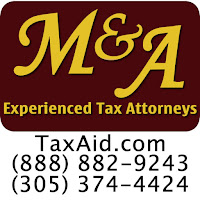The Government Accountability Office published a report on trends in IRS audit rates, audit results, and resources used for audits across individual taxpayer income levels. (GAO-22-104960)
With the IRS examining or auditing a decreasing proportion of individual tax returns, concern has been raised over "the potential for declining taxpayer compliance, as well as whether IRS is equitably selecting taxpayers for audit, as audit rates for higher-income taxpayers have decreased more than audit rates for lower-income taxpayers," the GAO said.
According to the report, from tax years 2010 through 2019, audit rates of individual income tax returns decreased for all income levels. On average, the audit rate for these returns fell to 0.25% from 0.9%. "IRS officials attributed this trend primarily to reduced staffing as a result of decreased funding," the report noted.
The Biggest Decrease in Audit Rates Was Found Among
Taxpayers With Incomes of $200,000 and Above!
"These Audits Are Generally More Complex And Require Staff's Review" While "Lower-Income Audits Are More Automated, Allowing IRS To Continue These Audits Even With Fewer Staff."
The GAO found that "generally" the IRS still audited higher-income taxpayers at higher rates than lower-income taxpayers. "However, the audit rate for lower-income taxpayers claiming the earned income tax credit (EITC) was higher than average. IRS officials explained that EITC audits require relatively few resources and prevent ineligible taxpayers from receiving the EITC," the report said.
From fiscal years 2010 through 2021, the majority of the additional taxes recommended by the agency came from taxpayers with incomes below $200,000. The report noted that additional taxes recommended per audit rose as taxpayer income increased.
"The average number of hours spent per audit was generally stable for lower-income taxpayers but more than doubled for those with incomes of $200,000 and above," the GAO said.
So what happened to to the IRS Wealth Squad?
According to Law360, Rep. Bill Pascrell, D-N.J., who chairs the House Ways and Means Committee's Oversight Subcommittee, said the GAO's report raises concerns about the national tax system and called for lawmakers to implement a more fair tax regime. Pascrell requested the report ahead of a subcommittee hearing on taxpayer fairness that representatives for the GAO are scheduled to testify at on Wednesday, May 25, 2022.
"Over The Last Decade, Accountability For The Wealthiest Tax Cheats Has Plummeted So Far It Almost Hits The Floor," Pascrell Said In A Statement.
"I worry well-off taxpayers are not going to be pursued at the rate things are going."
While audit rates decreased most for higher-income taxpayers, the IRS still generally audits them at higher rates compared to their lower-income counterparts, the GAO said. Even though audits of taxpayers claiming the EITC resulted in higher amounts of recommended additional tax per audit hour compared with most income groups, the audit rate for those taxpayers didn't top that of the highest-income taxpayers, according to the report.
Have an IRS Tax Problem?
Contact the Tax Lawyers at
Marini & Associates, P.A.
Read more at: Tax Times blog











